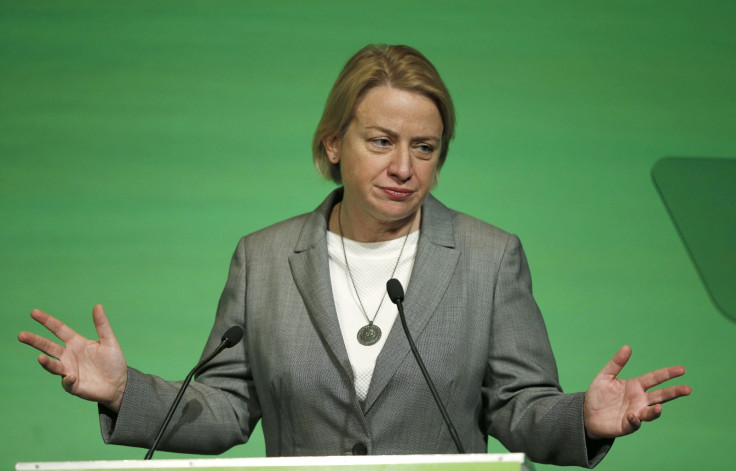Election 2015: Is Natalie Bennett to blame for Green Party boom to bust?

It doesn't feel like so long ago that the Green Party could point to polls that put them at 10% ahead of the May election and a surge in support that was poised to make Natalie Bennett's party bigger than Ukip.
That is probably because it wasn't actually that long. In January, a poll from the Guardian put the Greens on 9%, Lord Ashcroft put them on 11% and a YouGov poll for the Sun 10% while the New Statesman reported that the party saw 2,000 members sign up in a single night.
Three months on and the situation for the Green Party seems to have been reversed. In February, a series of disastrous interviews that Bennett herself described as "excruciating" saw her unable to explain how the Green Party would pay for its housing policy on both LBC radio and then on the BBC.
Support for the Greens now sits at little over 5%, according to the latest poll by YouGov. Green Party membership is still at record highs of over 60,000 but talk of the party gaining more MPs in the May election has been replaced with speculation about how long Bennett will last as leader.
Green Party voters are relatively unlikely to be concerned by what the likes of Andrew Neil think
On Monday (20 April), a poll by Youth-Sight, a youth research agency, revealed that in the Green Party's core demographic – students – support had also fallen sharply, from 28% in February to 15% now, with the Conservatives overtaking the party as the second most supported on university campuses over Labour.
More worryingly for Bennett, the poll also found that the number of students that disliked the Green Party leader had doubled from 12% at the end of last year to 24% in April. Those that liked Bennett rose to 7% from 4% last year, but she remained the second most unpopular leader after Nigel Farage. The Green Party did not respond to requests for comment by IBTimes UK.
Also on Monday, tabloids including the Daily Mail and the Daily Mirror published blog posts by Bennett's partner, former Socialist Workers' Party (SWP) activist Jim Jepps, in which he appeared to defend rape fantasies and question why teachers which have relationships with pupils are put on the sexual offenders register.
In a statement to the Mail, Bennett refused to comment on Jepp's blog, pointing out that he was not a member of the Green Party.
Bennett, who replaced Green Party MP Caroline Lucas as leader in 2012, undoubtedly lost support after her interview with LBC's Nick Ferrari, during which she could not explain how the party would pay for 500,000 new homes for council tenants and then appeared to descend into fits of coughing when pushed on the numbers. Bennett gave an equally lacklustre performance during a BBC interview with Andrew Neil.
But analysts are sceptical that the Green Party's core supporters would be persuaded not to vote for Bennett or Green MPs because of her TV or radio performances. James Dennison, researcher at the European University Institute, Florence, and junior visiting fellow at Nuffield College, Oxford, told IBTimes UK that Greens tended to vote for the party because of its wider vision for society rather than its policies.
"Green Party voters are relatively unlikely to be concerned by what the likes of Andrew Neil think," said Dennison, referring to Bennett's performance on the BBC Daily Politics show.
He also pointed out that the Greens occupy a very crowded space on the left of British politics, competing with both the Liberal Democrats and a resurgent Labour Party under Ed Miliband. Many left wing voters that would usually opt for the Greens are shifting to either the Liberal Democrats or Labour, aware that to vote Green would likely benefit the Conservatives.
"It's important not to overstate either the rise of the Greens nor their decline. Some polls put them as high as 10% around January but those were the exception. Using polls we can see a slight dip from 8% around the New Year to around 5% now, [that] is not a huge decline and is actually a big increase compared to just one year ago," he said.
In that respect, it is Britain's first-past-the-post system rather than Bennett's TV and radio persona – or indeed her personal life – that is the biggest cause for concern for the Greens.
© Copyright IBTimes 2025. All rights reserved.






















